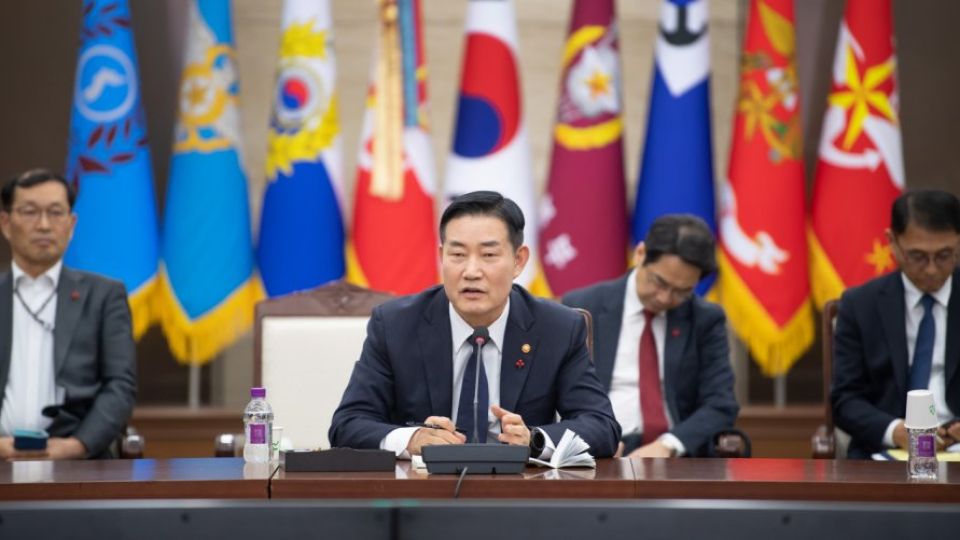January 2, 2024
SEOUL – South Korea on Monday returned North Korean leader Kim Jong-un’s fresh threats of a nuclear attack with a warning that an attempt at such a move would result in the end of his regime.
Shin Won-sik, the Minister of National Defense in Seoul, said in a written New Year’s message that Pyongyang will be made to face the realization that military threats against the country would mark “the beginning of its own downfall.”
Late Sunday, the Defense Ministry responded to the North Korean leader’s year-end speech in which he called for preparations for war, by warning that his regime would come to an end if he attempts to use nuclear weapons.
“Should North Korea decide to use nuclear weapons against us, our response will strengthen alliance with the US and the Kim regime will meet its end,” the ministry said in a release. The North Korean leader’s speech is “yet another show of his will to continue dictatorial rule that sacrifices the well-being of his people to preserve power,” the ministry said.
At the end of five days of meetings of the Workers’ Party of Korea central committee on Saturday, Kim said that he would no longer seek reconciliation or reunification with South Korea.
He called South Korea “no more than a US colony” that is “unsuitable to discuss unification with.” “Whether it be a conservative administration or a liberal one that is in power, South Korea has harbored the same ambition — to destroy our system and government,” he said.
“There is no denying that we are two countries most hostile to each other existing on one peninsula.”
He unveiled plans for strengthening the country’s military capabilities in the coming year, including the launch of three more spy satellites and enhancement of missile and nuclear forces.
Seoul’s defense chief Shin said that North Korea was believed to continue provocations, which have intensified since its withdrawal from the now-defunct 2018 inter-Korean agreement.
“Any real peace can only be kept by having the force to protect it, not some words or paper,” he said, referring apparently to the now-defunct deal reached between the last President Moon Jae-in and the North’s Kim. “Deterrence means retaliation through force, which is the way to peace.”
After North Korea launched its first spy satellite, Malligyong-1, on Nov. 21, South Korea decided to suspend parts of the deal aimed at reducing military tensions near the shared border.
The partial suspension would let South Korea restore surveillance activities in the “buffer zones” where drills and other military exercises were restricted, the Defense Ministry explained then. North Korea reacted by announcing it would pull out of the deal altogether.


